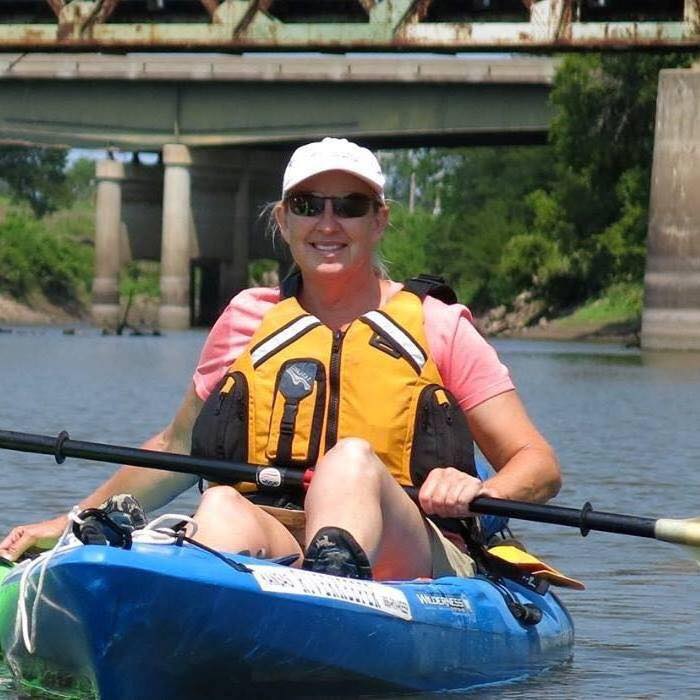Dredging on the Kaw
Tuesday, 29. March 2011
by Drew Elizabeth Wille
Between now and the end of 2012, all river dredging permits issued for the Kansas River will be re-evaluated by the U.S. Army Corps of Engineers. River dredging, a common practice in the Kansas River, affects the environment in several ways.
“It’s always been an issue,” said Kale Horton, project manager for the U.S. Army Corps of Engineers.
River dredging, or water mining, is a popular occurrence in the Kansas River which flows through Lawrence and the entire northern half of Kansas. Because of its high sand and gravel content, dredging is important for commercial companies like the Kaw Valley Companies, Victory Sand and Gravel, Meier’s Ready Mix, and Kansas Sand and Gravel.
The benefits Kansans receive from the Kaw, as it is commonly called, include high quality concrete used for roads as well as buildings according to KansasRiver.org, but there is controversy about the environmental effects of companies dredging.
Because of the disturbance dredging causes in the Kansas River, section 10 permits are required before dredging is allowed. Section 10 permits are required by the U.S. Army Corps of Engineers anytime work in navigable waters is desired.
“They (the agencies) have to do an application, which you can find online and it’s about two pages, but then they have to write quite a bit of supporting information because it’s a complex action,” Horton said. “We will look at everything from engineering, erosion, environmental bed degradation, economics, we look at it all. We make a balanced decision. We open the permits up for public comment, too.”
Environmental Impacts
The environmental impacts of dredging can outweigh the benefits because of poor water quality, increased water pollution, erosion and harm to the stability of the river’s natural structure and its habitat, said Kansas Riverkeeper Laura Calwell.
“The habitat immediately changes when dredging occurs,” said Friends of the Kaw’s science advisor, Dr. Cynthia Annett. She said dredging sites in the Kansas River become homes for bigger fish like bass which then feed on smaller, native fish of the Kaw, like the endangered Arkansas River Shiner. Dredging also causes silt and sediment to stir up within the river which is harmful to its habitat.
“Silt clogs the gills of fish,” Annett said, and sediment build up takes away the oxygen fish and other underwater creatures need. Dredging can even harm insects like dragonflies whose eggs are laid underwater on the riverbed until they hatch and reach the surface.
Dredging also causes settled toxins, such as polychlorinated biphenyls or PCBs, to be stirred up within the water which then increases the river’s contamination levels, Annett said. Erosion is also a consequence of dredging which can be seen along the river’s shoreline, just north of Bowersock Dam in Lawrence.
Another way to dredge
In-river dredging isn’t the only way to obtain good Kansas sand and gravel. Off-river dredging is an option Calwell finds to be mildly less environmentally harmful, but still a disturbance to the nature of the land.
The U.S. Army Corps of Engineers is currently reviewing an off-river pit mine to be located in Douglas County. While the requested permit is being evaluated, the Kaw Valley Companies has already bought the land in Eudora to create this dredging project, Annett said. The Kansas City district U.S. Army Corps of Engineers’ public notice regarding the permit states that “…the project site is approximately 197 acres.”
Horton said Douglas County will have to issue a zoning permit and the Corp of Engineer’s will have to issue a Section 404 permit before the pit mine off-river dredge site can become operable. Section 404 permits of the Clean Water Act are what’s required, “…before dredged or fill material may be discharged into waters of the United States,” as stated in the U.S. Environmental Protection Agency’s Wetland Regulatory Requirements.
The date by which the Kaw Valley Companies permit request will be accepted or denied has yet to be announced.

 Paddle safely! Use the links below to quickly access information that impacts river conditions.
Paddle safely! Use the links below to quickly access information that impacts river conditions.
